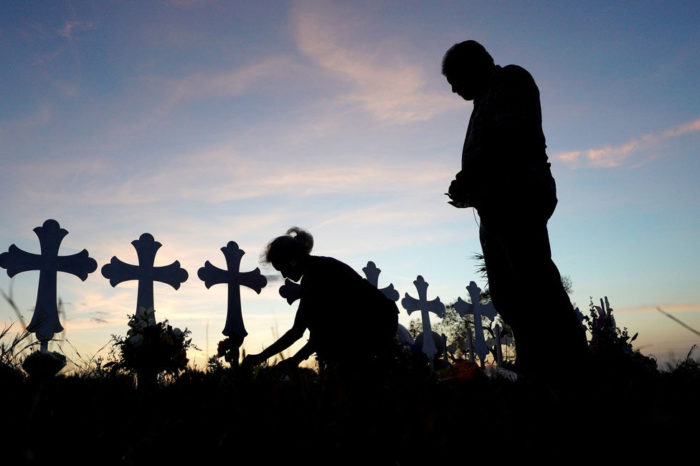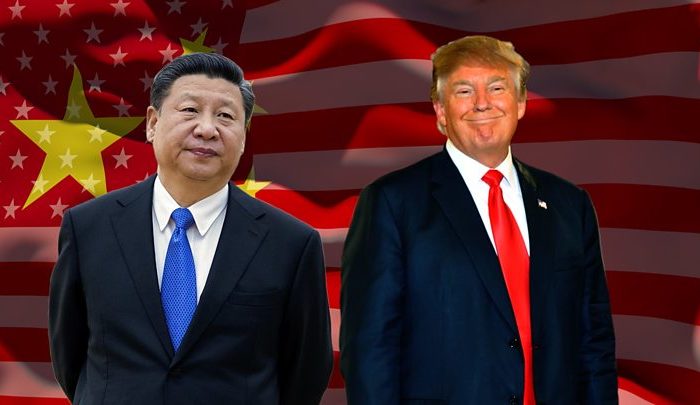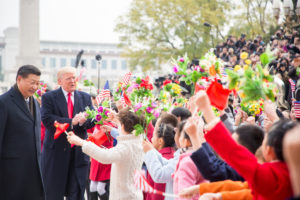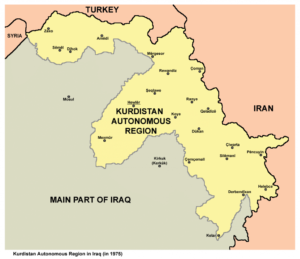By Maggie Gallagher and Frank Cannon
Walk into any room full of Christian conservative donors, and someone will say, “Politics is downstream of culture.” Every head in the room will nod. Nothing is more entrenched as conventional wisdom among Christian conservatives. Like most truisms, this one is only partly true. As people change their beliefs about what is true and good, politics changes as well. But putting culture above politics as a distinct sphere is profoundly mistaken, for politics is part of culture.
Politics allows the American people to give public form to what they believe to be true, good, and important; it is also the main way Americans decide which views are “within the pale” and which are beyond it. Elites of the left dominate most other domains: the mainstream media, the academy, the arts, Hollywood, Madison Avenue, and increasingly the Chamber of Commerce and corporate suites. When an idea or issue drops out of politics, therefore, progressives can easily stigmatize it as outside the mainstream, extremist, and intolerable, effectively ending conversation. But election results feed back into culture. Political realities can override the dictates of the left, as Trump’s election reminds us.
Politics is full of cultural content. When our ideas find success at the polls, traditional believers find out that they are not alone, isolated, or on the fringe. This strengthens our voice in the public square. When voters swept Ronald Reagan into the White House, the New York Times could no longer define conservatives as outside the mainstream.
Electoral victories have other cultural consequences. Harvard Law School recently established an Antonin Scalia chair. Has Harvard suddenly been persuaded that Scalia’s ideas are sound? Probably not. Harvard publicly acknowledges the intellectual legitimacy of Scalia’s textualist and originalist approach to constitutional interpretation only because, thanks to politics, the Federalist Society has a great deal of influence on Republican nominations to the federal bench, including the Supreme Court.
The give-and-take of politics also tells Americans what views their fellow citizens hold and care about. In November 2016, many liberals were shocked to discover that their preoccupations were not shared by many voters in swing states. Politicians who want to win elections respond to this information and adjust to win the votes they need to gain office. That’s why Bill Clinton signed the Religious Freedom Restoration Act in 1993. He was tired of watching Democrats lose elections because they were outside the mainstream of middle America. As a consequence, religious liberty became a bipartisan commitment for at least a decade.
This is not to say that culture does not influence politics. The left can use media power to intimidate Republicans, encouraging them to fall silent about particular issues. But this is almost always matched by political spending for issues and candidates, which reinforces cultural messages. Fairly quickly, this combination leads to cultural change. When only one side is willing to speak enthusiastically about a prominent issue, people begin to believe there really is only one side. The polls shift quickly as the hearts and minds of the mushy middle move toward the only visible position. If only one team is on the field, it wins by default.
The push for gay marriage provides a case study. In the years leading up to the Obergefell decision, Republicans stopped talking about the substance of the issue. Instead of vigorously defending marriage, they increasingly sidestepped, briefly acknowledging their support of traditional marriage or reverting to federalism (“leave the matter to the states”). This approach communicated clearly to voters that defending marriage was not an issue of central concern. Meanwhile, Democratic candidates trumpeted “marriage equality” and “love is love.” Not surprisingly, opinion polls shifted toward approval of gay marriage.
For this reason, “truce strategies” damage the causes religious and social conservatives support. When our positions are not articulated in politics, opponents can easily caricature and dismiss them. Truce strategies also forgo opportunities to effect substantive change. As political scientists Edward G. Carmines and James A. Stimson have pointed out, issues that change partisan alignments and re-orient the electorate’s views have three characteristics:
“Issue preferences must be deeply felt.” A passionate minority can move mountains in elections. Indeed, the notion of activating a moral majority has been one of the weak points in Christian conservatives’ political model. Consider the polling on the proposal to ban “assault-style weapons.” Eighty percent of Democrats and those who lean Democratic favor such a ban, and so do 54 percent of Republicans and those who lean Republican. Yet the NRA can block such a ban because they are able to rally a minority of voters who feel very strongly—and are politically organized.
The Christian conservative movement has taken a different approach, encouraging a “mass uprising,” a moral majority that feels strongly that it can win elections without political organization or targeted action. This never worked very well, leading to threats that voters would stay home if the GOP didn’t implement our priorities—mass defection as a model of political influence. Neither idea amounts to a plan, certainly not a plan for our times. Meanwhile, the broader culture disintegrates on sexual matters and the LGBT community tightens its hold on culture-shaping institutions that channel and intensify hatred against traditional believers.
“Parties and candidates must take up visibly different positions on the issue.” Carmines and Stimson point out that the cultural and political consequences are most dramatic when the two parties take clearly articulated, opposing stands. But cultural consequences also follow when “one of the parties chooses to ignore the issue while the other party takes a strong stand.” Either way, “the degree of objective party differentiation on major issues” is “very critical in the shaping of public opinion.”
To keep our moral principles in the mainstream, we need high-profile political commitments that command the loyalty of significant chunks of the electorate. The sanctity of life provides the most obvious example. The left would like to brand the pro-life position as outside the mainstream, but cannot. The reason why rests in the political salience of our position, not the left’s “fair-mindedness.” The unwillingness of Republican politicians to sustain a clear commitment to traditional marriage illustrates what happens when our views are not put forward as clear political commitments. The position that until almost yesterday was nearly universal now has been branded as bigotry. If we do not change our strategy, religious liberty will soon be in the same position. Legal strategies without a political strategy will not be enough.
“The issue must be long on the political agenda.” To sustain the cultural impact of political involvement, Christian conservatives must keep their commitments on the political agenda over time. The pro-life community learned to move from the Human Life Amendment to smaller legislative issues such as late-term abortions and taxpayer funding, winning important victories and keeping the pro-life cause in politics for decades. This is one of the reasons the pro-life movement has gained ground culturally. The scandal of abortion remains before the public, working against the pro-abortion forces that would like to hide the reality of the killing of the unborn.
Political scientists in the seventies predicted that public opposition to abortion would collapse as older generations died off. Abortion polling looked about as dismal at that time as gay marriage polling does now. In 1972, 66 percent of those under age thirty felt there should be no restriction on abortion at all. But predictions about the direction of history turned out to be wrong. The cause of life has been able to win a large share of succeeding generations in part by keeping abortion alive as a political issue.
Today, just a few short years after Mitch Daniels, then-governor of Indiana, tried to persuade the GOP to adopt a truce strategy on abortion and other social issues, Democrats are acknowledging their abortion extremism is costing them votes. Both Bernie Sanders and DNC Chair Tom Perez publicly supported a self-described pro-life Democrat, Heath Mello, for mayor of Omaha. Perez admitted that abortion extremism is hurting the Democrats politically: “In order to execute a 50-state strategy, we need to understand what’s going on in all 50 states, and attract candidates who are consistent with their messages but perhaps not on 100 percent of the issues.” Attacks by pro-abortion groups caused Perez to walk back his support, and Mello promised to vote for only pro-choice legislation. But a few months later, Rep. Ben Ray Luján, chairman of the Democratic Congressional Campaign Committee, announced that a pro-abortion position would no longer be required for its support: “There is not a litmus test for Democratic candidates.”
All of this suggests that culture is in some sense also downstream of politics, not just the other way around. Data from other countries reinforce this conclusion. Americans are nearly twice as likely as Canadians to say abortion should not be permitted at all. We are three times more likely than the British to say abortion should be illegal in all or most cases. In Great Britain, according to another poll, support for a ban on abortion actually fell between 2005 and 2013 from 12 percent to 7 percent. Religious people in Great Britain were about as likely to support legal abortion as other citizens. These striking differences no doubt reflect some cultural differences, but surely the specifically political influence of a vigorous pro-life movement that can win elections in the United States is an important factor.
The left seems to have learned this lesson. They approached gay marriage in ways designed to shut it down as a political issue. Progressives invested heavily in innovative direct political action, which, combined with its media influence, helped them defeat major social conservative leaders who spoke out against gay marriage, most prominently Sen. Rick Santorum. It was a strategy described in the now-famous March 2007 Atlantic essay “They Won’t Know What Hit Them.”
Others have been targeted. As a Colorado Congresswoman, Marilyn Musgrave sponsored the federal Marriage Amendment in the House of Representatives, where she introduced it in 2003. The gay left’s campaign against her began in 2006 when the multimillionaire tech entrepreneur Tim Gill and his fellow pro–gay marriage donors poured $2 million into negative ads opposing her reelection. These ads never mentioned gay marriage. Instead, they criticized Rep. Musgrave for voting against a pay raise for Iraq War veterans.
She hung on with 51 percent of the vote in 2006, but with the template established, gay mega-donors returned in 2008 with a similar strategy. They worked to defeat her because of her opposition to gay marriage, but that remained invisible. The voting public saw only ads driving up her negatives on every conceivable issue. “Musgrave took over $183,000 from Big Oil and gave them billions in tax breaks,” one ad said. Another had a voiceover intone, “A citizen watchdog group named Musgrave one of the most corrupt members of Congress.” As Musgrave told one of us, “They even started fake pro-life organizations to claim I’m not pro-life enough.”
In the face of these sophisticated and well-financed attacks, pro-family Christian conservative organizations continue to do politics as usual, investing most of their resources in pastor organizing, voter guides, voter registration efforts, referendum efforts, and policy papers. This is all to the good, but it is not good enough, at least not in today’s political climate.
After Musgrave and others were punished politically, Republican elites concluded that opposing gay marriage would hurt them. They were able to wiggle away from a public stance on the issue because social conservatives did not appear to have political resources to help them fight back against the kind of tactics that defeated Musgrave. We talk with many intelligent Evangelicals who see candidate recruitment as the key to electing politicians who will not betray us. But electing faithful Christians like Marilyn Musgrave won’t help if we do not have the political resources to defend and protect them.
Pat McCrory, the North Carolina governor who was the lone Republican in 2016 to stand up against Obama’s transgender edict requiring public schools to let biological males in girls’ bathrooms, locker rooms, and sports teams, went down to defeat because of the same lack of astute tactical support from social conservatives. The left does not have to defeat everyone. They only need to demonstrate they can defeat one of our leaders. This sends other Republicans scurrying for political cover.
Republicans silenced themselves on marriage not after they lost the support of the American people but before. In 2009, Americans opposed gay marriage 54 percent to 37 percent according to a Pew poll. By 2010, when Mitch Daniels publicly announced that the next president “would have to call a truce on the so-called social issues,” Americans were still evenly divided. When the other side keeps fighting, “truce” is another word for surrender. Today, more than three-fifths of the American people support gay marriage, including 40 percent of Republicans.
The left has now moved on to redefining religious liberty as a license to discriminate, using the same successful tactics. There remains a substantial reservoir of support for religious liberty. As recently as July 2015, according to an AP poll, a third of Democrats and 59 percent of independents say religious liberty should trump gay rights where they conflict. But if we continue to respond to challenges with our failed tactics, religious liberty will lose too, not just politically but culturally as well.
The last decade has made one thing clear: Nonpolitical cultural strategies without a new, better, deeper, and more effective investment in direct politics will fail. At a minimum, to sustain religious liberty, we will need an effective political arm to win legislative battles for our schools, charities, and businesses. We cannot preserve our cultural consensus about the First Amendment without making it clear that those who wish to undermine religious liberty will pay a dear price at the polls.
Apolitical movement needs many things: messaging shops, coalition builders, policy reports, candidate recruitment, attractive spokesmen, and voter registration drives. But these exist to support, not replace, the central act of democratic politics, which is winning elections. This is precisely what social conservatives lack. We lack the capacity to elect our friends and defeat our opponents. Which means we need to build the organizational structures that can engage directly in politics: PACs, super PACs, and 501(c)(4) independent expenditures.
We need to propose specific legislation that forces politicians to defend our positions. If elected officials have to vote, they will need to explain and justify their votes in public. When they do so, the general public will hear someone defending our commitments as true and our policies as good. By contrast, when we organize around generic principles rather than specific legislation, it is easy for politicians to mislead or confuse voters. The rhetoric of “judicial restraint” and “federalism” are classic instances. They may be good principles, but in recent decades they have been ways for elected officials to suggest they are pro-life, pro-marriage, or pro–religious liberty without actually saying so in public.
The 2012 election demonstrated the need for change in the way we address politics and culture. Mitt Romney was nominally against gay marriage, but he ran no ads on the issue. Obama and the Democrats were all-in for gay marriage. What happened? Did any national social conservative organization go into Ohio or North Carolina and spend even $2 million to demonstrate the issue could deprive the Democrats of the White House? No. We accepted our role in the aging Reagan coalition, which has become that of a silent partner. We let the Republican operatives in D.C. dictate electoral strategy, which advised promoting economic issues and downplaying social issues.
We have a long way to go. Our research shows that between 2007 and 2014, conservative organizations dedicated to changing public policy on life, marriage, and religious liberty spent just under $75 million in direct political spending. By contrast, the leading gay-rights political organization, Human Rights Campaign, recently pledged to spend $26 million in 2018 on direct political action. Emily’s List, one of the largest pro-abortion PACs, spent $36 million in 2016 and is likely to spend as much or more in the upcoming electoral cycle. In other words, only two organizations on the left will spend in one year almost as much on direct political action as all socially conservative organizations combined spent between 2007 and 2014. Comprehensive data for 2015 and 2016 are not yet available. But the preliminary data suggest political spending by social conservatives is falling, not rising.
This must change. We need to invest resources in direct political spending that helps us focus the 2018 elections on the left’s threats to religious liberty and its transgender extremism. We need to show that the outspoken representatives of these views can be defeated in elections. Defeats of just a few hardcore culture warriors on the left will sober up other Democratic politicians. Persuading even 3 percent of those who usually vote Democratic to turn against the left in close purple-state elections will have a far greater impact, politically and culturally, than any “rally the base” strategy.
The Democratic party pushes deeply unpopular policies because rich donors who support LGBT and abortion extremism provide them with direct political money. They have come to rely on Republican silence on these issues. They cash the checks and are not held accountable at election time. We’ve lived through a counterproductive cycle of elections in which Republicans gave us green-eyeshade issues such as deficit reduction and tax cuts for those with higher incomes, while Democrats hammered away at us as “bigots” and “haters.”
It is past time to set aside the failed truce strategy of recent decades. We need a political strategy that will take our case to ambivalent Democrats and independents. This will make social conservatives more politically influential—and more culturally influential as well, for politics is part of culture.
EDITORS NOTE: Maggie Gallagher is a senior fellow and Frank Cannon is president at the American Principles Project. The full report and data on which this article is based are available at CaseForPolitics.com.
























 The two main issues in the dialogue between Barzani and the Iraqi regime are:
The two main issues in the dialogue between Barzani and the Iraqi regime are:

To the majority of Americans, “The Star-Spangled Banner” is a moving tribute to what the country represents: freedom, duty, bravery, and commitment to the men and women serving in the armed forces. Clearly, Kaepernick—who makes millions of dollars playing the game he loves—has a different view of what the over two-century-old song represents.
“I am not going to stand up to show pride in a flag for a country that oppresses black people and people of color,” Kaepernick told the NFL media. “To me, this is bigger than football and it would be selfish on my part to look the other way. There are bodies in the street and people getting paid leave and getting away with murder.”
Lambasting “The Star-Spangled Banner” isn’t a new phenomenon. Liberal groups and commentators have tried to get the tune replaced for years, citing racism (Key was a slave owner) and the inherent “militarism” of the song.
An op-ed in The Intercept supported Kaepernick’s actions by dredging up a few stanzas, since removed from the modern rendition of the anthem, that explicitly mention slavery. Columnist Jon Schwarz wrote that the song “literally celebrates the murder of African-Americans.”
Hyperbolic reactions to one of America’s oldest patriotic songs fly in the face of what perhaps a dwindling number of Americans understand. Although the American republic was founded with many imperfections and contradictions—such as the institution of slavery—the timeless principles laid at its foundation have led to more human prosperity for a wider variety of people than any civilization in human history.
Frederick Douglass, an escaped slave who played a critical role in the abolitionist movement in the mid-19th century, had been a frequent critic of American policy and the existence of the “peculiar institution.” However, he believed that the dearly held principles of the Declaration of Independence, and its unequivocal statement that all men are “created equal,” would eventually lead to slavery’s dissolution.
Douglass pulled no punches in criticizing slavery as a massive contradiction in American life, but he understood the evils of the system would be corrected by embracing the country’s origins rather than rejecting them. He encouraged black Americans to sign up and fight for the Union under the American flag during the Civil War, played a crucial role in recruitment efforts, and convinced many former slaves to serve in the military and embrace the United States as the vessel—not the thwarter—of freedom.
Douglass was known to frequently play “The Star-Spangled Banner” on his violin for his grandchildren in the years after the war. He said in an 1871 speech at Arlington National Cemetery that “if the star-spangled banner floats only over free American citizens in every quarter of the land, and our country has before it a long and glorious career of justice, liberty, and civilization, we are indebted to the unselfish devotion of the noble army.”
For the most part, fans and players in the NFL embrace a similar view of the United States.
Rashad Jennings, a black athlete who plays for the NFL’s New York Giants channeled Douglass in his support for the national anthem and the American flag. He told the New York Daily News, “It’s nice to know that we live in a country where sitting down during the anthem won’t land you in jail or worse.”
Jennings said he was proud to stand for the song and continued to explain why he supports the values contained in its verses:
Jennings’ teammates made a point to stand at attention for the national anthem during a Saturday night game against the New York Jets.
Gallup polls indicate there has been a rapid decline of American pride in their country in recent years—a dangerous slide for a multiethnic republic bound together by principles and institutions rather than national origin.
Kaepernick’s outright attack on what the American flag exemplifies is just the latest sad episode of Americans’ abandonment of the hallmarks of their unity and love of country. This is why it is important for Americans who still believe in what the country was founded on to stand and support the symbols of our way of life.
COMMENTARY BY
Jarrett Stepman
Jarrett Stepman is an editor for The Daily Signal. Send an email to Jarrett. Twitter: @JarrettStepman